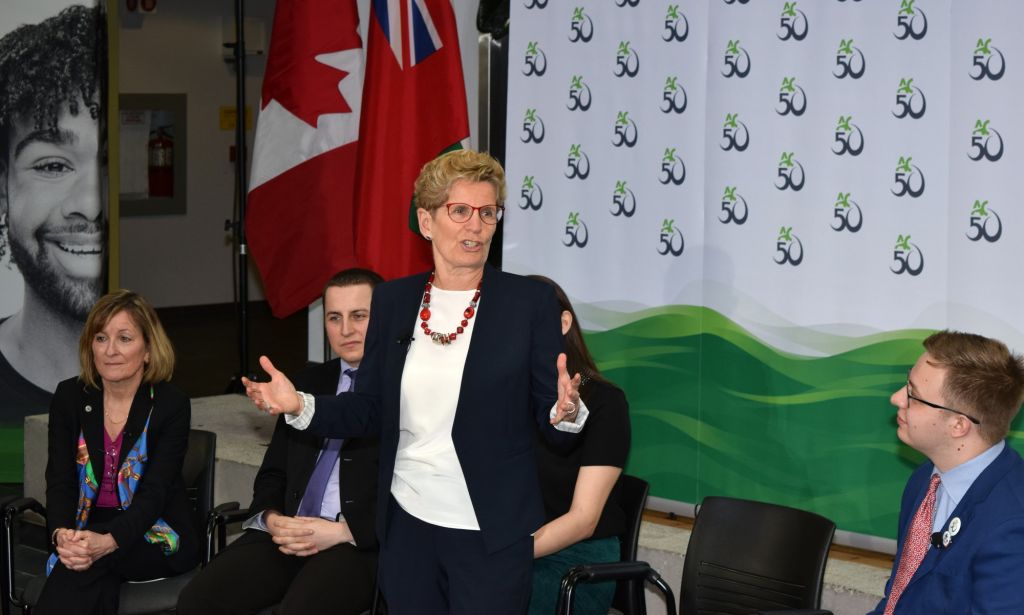Algonquin will receive a $2.9 million cash injection from the province to mark the occasion of its 50th anniversary, Ontario premier Kathleen Wynne announced at a college town hall Tuesday.
The money is part of a larger $50 million investment in the college system that was previously announced on April 5.
“I want to commend Algonquin for all the work that you do,” Wynne told a subdued audience made up of dozens of students and staff in Minto Hall of the ACCE building.
After the announcement, Wynne took some questions from audience members during an open session.
One student asked about the new OSAP and complained that the touted “free tuition” doesn’t cover enough students.
“We recognize that people are living in different circumstances,” Wynne said.
She explained that while not all students are eligible and it depends on income and their program, the government estimates that 230,000 students will be in less debt because of the changes.
“I wish we could wipe out student debt (entirely),” she said. “But that’s not possible.”
Colleges in Ontario receive the lowest per-student government funding in the country, according to Colleges Ontario. Algonquin alone will receive about $6.5 million less in provincial funding in 2017-18, the Board of Governors was told in February.
Amid the cuts to funding, Wynne said there is a choice to be made.
“We can either fund the general education institution more or we can target the funding to the students who need it, and we’ve made that decision,” she told the Times in an interview following the event.
“We are going to take the money that we know those students need, in order to be able to access the institution, and put it into their hands.”
Wynne also addressed mature students, in response to a question from a 56-year-old woman in the audience who is attending Algonquin.
Wynne agreed there is a need for more retraining of older workers.
“Programs like Second Career (retraining program) are programs that we need more of, not less… you’re going to see more of the retraining.”
Jordan Reilly, a first year public relations student, asked Wynne about mental health initiatives to support students. He said recent student suicides, such as a string of four at Guelph University in January, are particularly alarming.
“(Mental health is) a very serious and increasingly prevalent concern,” Wynne said. “We are putting money into mental health but recognize that we haven’t caught up.”
According to the college’s public relations department, Algonquin will use the $2.9 million to support the construction of a new Indigenous Commons and “Collaboratory,” which will complement the Innovation, Entrepreneurship and Learning Centre, and Institute for Indigenous Entrepreneurship announced last fall. “An expandable, circular, gathering space, the area will be used for lectures, galas, and celebrations, and will provide an area for community members to interact and experience applications of Indigenous knowledge,” the college said.


